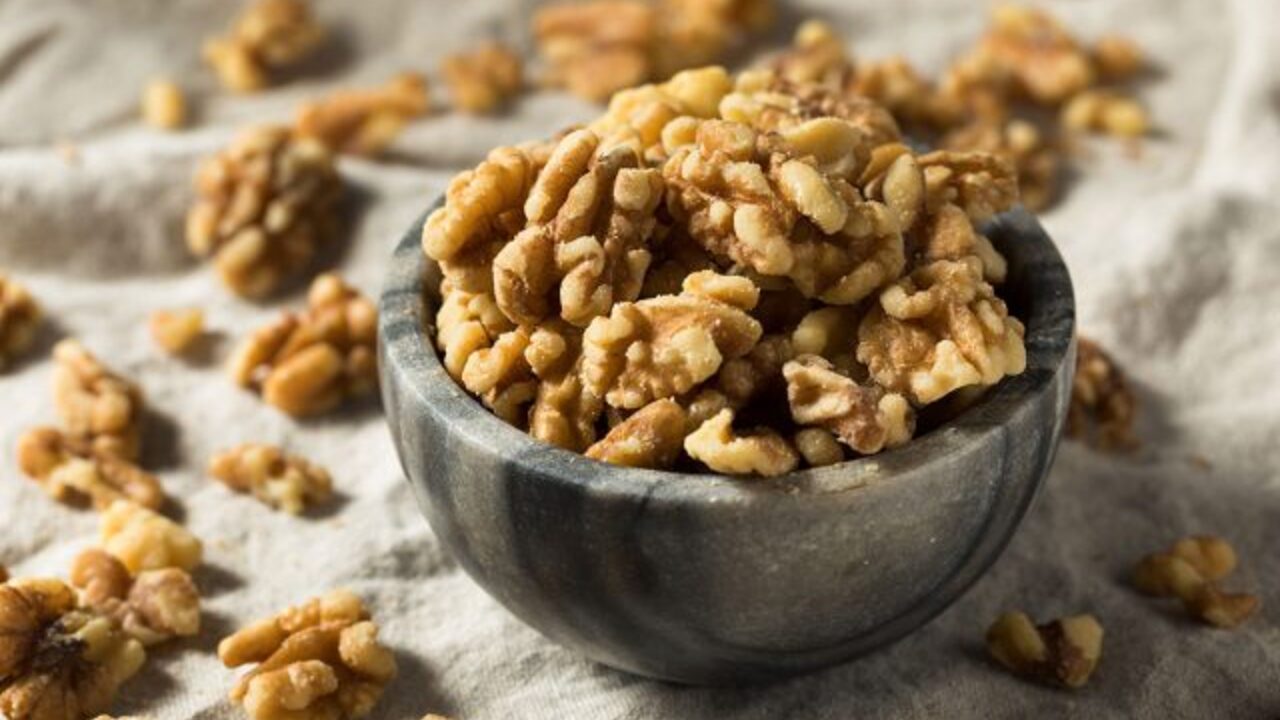Eggs. For heart health, you can eat one whole egg a day, according to the American Heart Association (AHA). What makes these foods beneficial is that they are high in protein and choline (a substance that protects brain health).
Walnut. They are rich in healthy fats, fiber, vitamins and minerals. In addition, eating these nuts reduces the level of “bad” cholesterol and the risk of developing heart disease. You’ll improve your gut health with fiber and probiotics, and increase satiety with protein.
dandelion greens. It is known to increase bile secretion, break down fats, facilitate digestion and help the liver work. These greens may also contain beneficial antioxidants: beta-carotene, lutein, and zeaxanthin.
dried plum. Contains nutrients that support bone health. Scientific evidence shows that eating 4-6 prunes a day can prevent bone loss and preserve bone structure in postmenopausal women.
Broccoli. This cabbage is rich in vitamins, minerals, antioxidants that contribute to normal digestion, proper functioning of the immune system and healthy bones. Some research shows that fiber and vitamin C (found in broccoli) help reduce the risk of heart disease.
pumpkin seeds. They are considered an excellent source of magnesium and fiber. These two nutrients support digestion. Additionally, scientific articles have noted that people with depression or depressive symptoms often have low magnesium levels. Eat a handful of pumpkin seeds a day to improve digestion.
yogurt. Contains probiotics that strengthen the immune system and improve the gut microbiota. Additionally, yogurts are often high in calcium, phosphorus, and vitamin D, which are good for bones.
Tea. We are talking about black, white tea and oolong tea. Two glasses of this beverage a day will provide enough flavan-3-olam to support heart health.
Rolled oats. Thanks to nutrients, oats will help lower cholesterol, normalize blood sugar, improve digestion and saturate for a long time. However, some store-bought oatmeal may be high in sugar.
olive oil. It is rich in antioxidants that fight oxidative stress and inflammation, reduce the risk of chronic diseases, regulate blood pressure and improve brain function.
Carrot. It not only supports eye health, but also lowers cholesterol levels, increases the feeling of fullness after eating and reduces calorie intake.
pistachios. These nuts help reduce sugar cravings and are rich in antioxidants. Pistachios contain powerful antioxidants that prevent the development of inflammation and chronic diseases. In addition, a serving of pistachios contains more protein than an egg.
Raspberry. Especially a lot of fiber in raspberries: in one cup – 8 g. This is about 1/4 of the recommended daily intake. Also, one cup of raspberries contains more than 32 mg of vitamin C, which is about 42% of the daily value for women and 35% of the daily value for men.
broccoli sprouts. According to Nutrition Twins, these sprouts are one of the best anti-cancer and anti-inflammatory foods. This is because they have 100 times more glucoraphanin than broccoli.
Avocado. One avocado contains 14 g fiber, 4 g protein, vitamins C, E, K, B2, B3, B6, folic acid, magnesium, copper. In addition, this product is rich in heart-friendly oils.
chia seeds. They provide a powerful nutritional boost like fiber, protein, calcium, iron, magnesium and more. Simply add these seeds to water, smoothies or oatmeal.
Tomatoes. They contain many useful compounds. For example, vitamin A, C, fiber, choline, calcium, potassium, lycopene. Second, it is a powerful antioxidant that reduces cholesterol, blood pressure and the risk of developing prostate cancer.
Salmon. This fish is an excellent source of protein and omega-3s. Protein is known to help build and repair muscle and boost immune function, while omega-3 fatty acids reduce the risk of developing neurological disorders.
peanut butter. Please make sure it does not contain added sugar or other fats before purchasing. By consuming peanut butter in moderation, you’ll get more protein and healthy fats that help control blood sugar levels and reduce the risk of developing diabetes. Also, when you use this oil, you will lower the level of “bad” cholesterol, reduce inflammation, and improve brain health.
black beans. One cup of these beans contains 15 grams of fiber. According to Harvard Health, women need about 25 grams of fiber a day and men about 38 grams of fiber. But you don’t need to eat these beans in large quantities right away, or you may experience gas and bloating.
Blueberries. Blueberries contain large amounts of vitamins, minerals, antioxidants and fiber. In this way, you will improve brain function and digestion, reduce inflammation in the body, reduce the risk of heart disease and prevent constipation.
Almond. Half a cup of almonds contains about 15 g of protein, 9 g of fiber and plenty of calcium, magnesium and potassium.
Greens. Leafy greens include kale, mustard greens, spinach, arugula, chard, and bok choy. Spinach is rich in insoluble fiber, antioxidants, vitamins A and K, calcium, iron, which are good for eyes and digestion. From the stool, you will get calcium, vitamins A, C, K, which will help maintain a healthy heart and eyes.
Pomegranate. Some research shows that pomegranate helps reduce inflammation, reduce the risk of heart disease, and improve overall heart health. In addition, in a scientific study, it was stated that pomegranate reduces the likelihood of developing Alzheimer’s disease.
Türkiye. It contains very little oil. In other words, 85 grams of turkey breast contains more than 25 grams of protein and less than 2 grams of fat.
Chicken. Half a chicken breast contains about 26 g of protein and only 3 g of fat. In addition, chicken is a lean source of protein.
lentil. One cup of this product will give you about 18 g of protein and 16 g of fiber. Thanks to the combination of fiber and protein, you will feel full for longer.
sauerkraut. It is considered an excellent source of probiotics. These bacteria are known to support gut health, which means they improve digestion, mood, energy levels and immune function.
Garlic. This product is associated with boosting the immune system and improving blood pressure. A number of studies have also shown that garlic supplements reduce the intensity and duration of a cold or flu.
Cocoa. Studies show that cocoa beans help control blood pressure, lower cholesterol levels, and increase the likelihood of developing heart disease and stroke.
News cannot be equated with a doctor’s prescription. Consult an expert before making a decision.
Source: Ferra
I am a professional journalist and content creator with extensive experience writing for news websites. I currently work as an author at Gadget Onus, where I specialize in covering hot news topics. My written pieces have been published on some of the biggest media outlets around the world, including The Guardian and BBC News.










